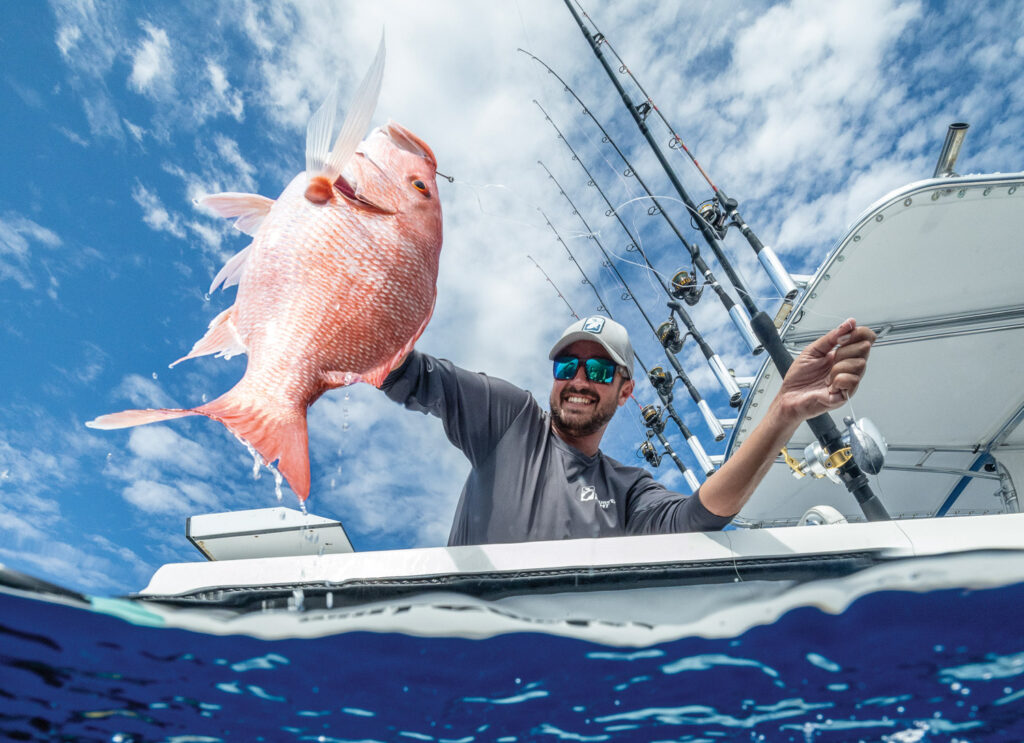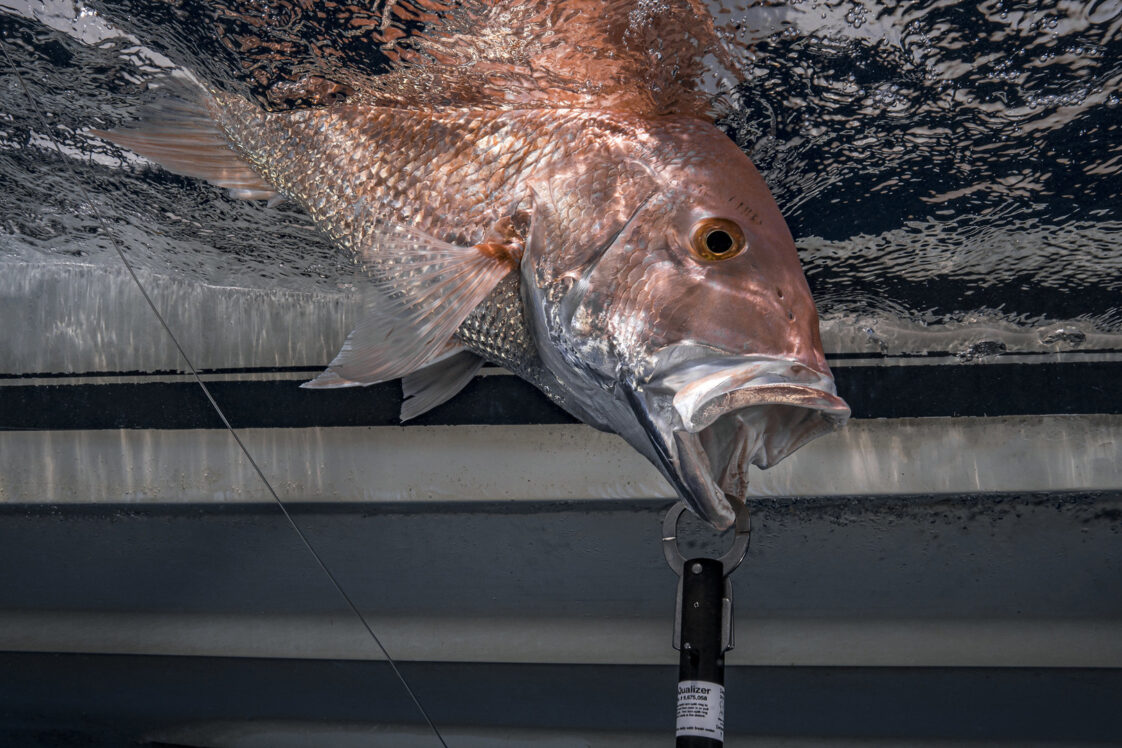A new program is training thousands of recreational anglers with equipment to release reef fish safely, helping protect fisheries along the Gulf Coast.
When reef fish such as snapper and grouper are reeled in from deep waters, the swift pressure change can cause their internal gases to expand, a condition known as barotrauma. This often results in severe bloating and grotesquely displaced organs, rendering a fish too buoyant to swim away when released. Each year, millions of reef fish die of barotrauma.
A UF-based team aims to change that.
In May 2022, Florida Sea Grant (FSG) launched “Return ‘Em Right,” a research-based educational program that teaches Gulf Coast anglers how to use descending devices — simple tools that quickly return fish to depth, allowing them to recompress and enhancing their chance of survival. Anglers who complete FSG’s online educational course at ReturnEmRight.org are eligible for a free gear kit, which includes two types of descending devices.
In the program’s first year, FSG trained nearly 14,000 anglers, including more than 570 charter captains, and distributed over 13,000 gear kits. FSG is helping to implement the seven-year program in collaboration with the NOAA Restoration Center and the Gulf State Marine Fisheries Commission, with assistance from UF’s Institute of Food and Agricultural Sciences.
“Return ‘Em Right is changing the culture around releasing reef fish, said Charles Sidman, associate director of research for FSG and the program’s principal investigator. In surveys, 65% of anglers who enrolled in the training said they had never used a descending device. After taking the course, that number fell to 17%.
“Every fish successfully released has the chance to grow, spawn and contribute to the future of fisheries,” Sidman said. “FSG has been studying the most effective ways to reduce barotrauma for 15 years. Now, we’re equipping the angling community with the best tools available to steward reef fish for generations to come.”

FSG has a 50-year history of researching and promoting sustainable fishing practices in Florida, where recreational fishing adds an estimated $13 billion to the economy each year. This made FSG a natural partner for a program that spans Gulf states, Sidman said.
Return ‘Em Right is also dynamic — the team tweaks training modules, gear kits and messaging in response to angler feedback. Follow-up surveys provide fresh data on how often anglers use descending devices and where, which species of fish they’re releasing and the kinds of resources they need in the future.
“Return ‘Em Right is being managed more like a start-up business than an academic program,” Sidman said. “Many of the tactics we’re using to implement the program come from the business world — how we market the use of descending devices, how we attract anglers and keep them engaged in the long-term sustainability of fishing. I’ve never been involved in anything at UF like this before.”
Photography by Return ‘Em Right

